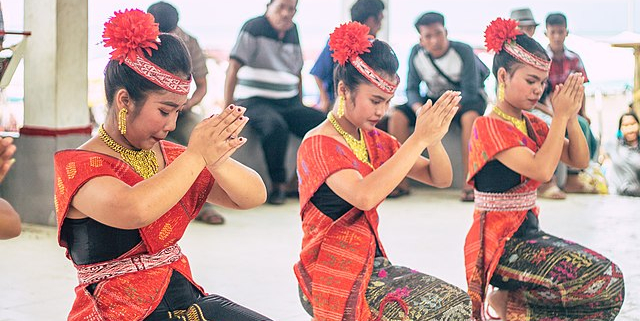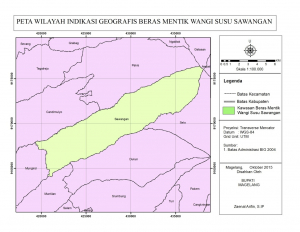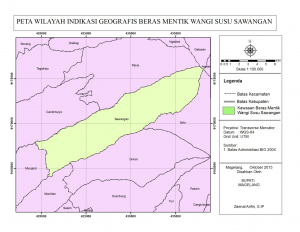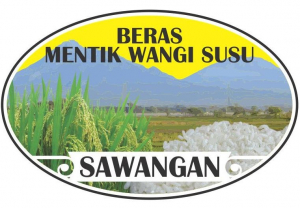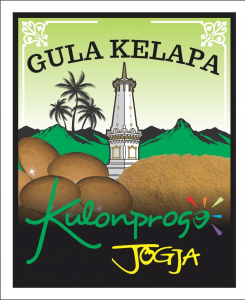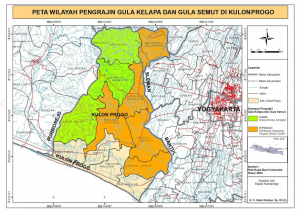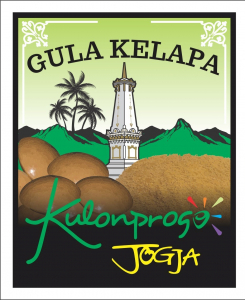Author: Prof. Dr. Budi Agus Riswandi, S.H., M.Hum.
Professor of Faculty of Law, Universitas Islam Indonesia, Departement of Private Law
Tanpa terasa waktu penyebaran virus covid 19 sudah berjalan hampir 2 tahun lebih di bumi pertiwi. Dalam kurun waktu ini angka kematian akibat virus covid 19 di Indonesia terus bertambah. Data terakhir dari covid19.go.id per 04 Agustus 2021 angka positif sebanyak 4.123.617 orang, angka sembuh sebanyak 3.827.449 orang, dan angka kematian sebanyak 135.469. Untuk dapat menekan persoalan ini, maka pemerintah dan masyarakat terus berupaya mengambil langkah-langkah preventif agar penyebaran virus covid 19 dapat dikendalikan dan angka kematian dapat ditekan.
Sejalan dengan hal ini, tidak dapat dipungkiri peran ilmu pengetahuan dan teknologi tidak dapat dielakkan dari penanganan virus covid 19. Adapun peran ilmu pengetahuan dan teknologi ini dibuktikan dengan banyaknya berbagai inovasi di bidang teknologi kesehatan yang memiliki kegunaan dalam mencegah penyebaran virus covid 19. Dari mulai ditemukannya vaksin covid 19 hingga alat kesehatan seperti masker dan sanitizer pun tidak luput dari sentuhan inovasi di bidang ilmu pengetahuan dan teknologi, khususnya inovasi di bidang teknologi kesehatan.
Dengan adanya berbagai inovasi di bidang teknologi kesehatan ini, ada dua pertanyaan mendasar yang menarik untuk dikemukakan dalam konteks ini, yaitu; (1). apakah berbagai inovasi di bidang teknologi kesehatan yang berguna untuk mencegah virus covid 19 layak untuk dimintakan paten di era pandemi covid 19 ini?; dan (2). apakah dengan dimintakannya paten atas berbagai inovasi di bidang teknologi kesehatan yang berguna untuk mencegah virus covid 19 tidak akan menghambat upaya pemerintah dan masyarakat dalam melakukan pencegahan virus covid 19?
Pro Kontra Paten di Era Pandemi Covid 19
Sebagaimana diketahui, paten secara konseptual dipahami sebagai hak hukum. Oleh karena, paten merupakan hak hukum, maka paten mendasarkan diri pada konsep hak. Hak di dalam hukum merupakan sesuatu yang dapat dituntut pemenuhannya, tetapi apabila hak tersebut tidak dituntut, maka hak tersebut pemenuhannya dilepaskan. Selanjutnya, paten sebagai hak hukum juga merupakan hak eksklusif yang diberikan atas invensi di bidang teknologi (baca: inovasi di bidang teknologi). Paten sebagai hak eksklusif yang diberikan atas invensi di bidang teknologi mengadung arti dalam tiga hal, yaitu (1). hak untuk menggunakan sendiri hak tersebut yang melekat pada invensi di bidang teknologi; (2). Hak untuk mengizinkan atau mengalihkan hak tersebut yang melekat pada invensi di bidang teknologi kepada orang lain; dan (3). Hak untuk melarang orang lain menggunakan hak tersebut yang melekat pada invensi di bidang teknologi. Atas dasar hal ini, maka penggunaan hak eksklusif atas invensi di bidang teknologi ini harus benar-benar sejalan dengan pengakuan dan penghormatan dari si pemilik hak (baca: pemegang paten) tersebut serta peraturan perundang-undangan dalam bidang paten yang berlaku.
Di era pandemi covid 19, realitas masyarakat dalam mensikapi paten ini telah melahirkan pro dan kontra. Dari kelompok masyarakat yang pro berpandangan bahwa paten di era pandemi covid 19 merupakan hal penting dalam konteks inovasi di bidang teknologi kesehatan saat ini. Adapun alasannya, hal ini dapat mencegah timbulnya produk-produk palsu dari pelanggaran paten. Sementara itu dari kelompok masyarakat yang kontra berpandangan bahwa paten di era pandemi covid 19 merupakan hal yang tidak diperlukan dalam konteks inovasi di bidang teknologi kesehatan. Adapun alasannya, hal ini dikhawatirkan akan menghambat bagi upaya memanfaatkan hasil inovasi di bidang teknologi kesehatan untuk upaya pencegahan virus covid 19.
Paten dan Pencegahan Virus Covid 19
Dengan banyak inovasi di bidang teknologi kesehatan yang berguna untuk mencegah virus covid 19 dihasilkan, maka pada dasarnya inovasi di bidang teknologi kesehatan ini dapat saja dimintakan patennya kepada negara atau dapat juga dilepaskan untuk tidak dimintakan patennya kepada negara. Dua tindakan ini dibenarkan, karena UU No. 13 Tahun 2016 tentang Paten (selanjutnya disebut UU Paten) pada kenyataannya memang tidak pernah mengatur bahwa meminta paten kepada negara merupakan suatu kewajiban hukum bagi inovator, tetapi justru didudukkan sebagai suatu hak bagi inovator.
Ketika inovasi di bidang teknologi kesehatan dimintakan patennya kepada negara oleh inovator, maka inovasi di bidang teknologi kesehatan yang berguna untuk mencegah virus covid 19 harusnya dapat diberikan paten–apabila memenuhi persyaratan yang ditetapkan dalam UU Paten. Pada saat paten itu diberikan oleh negara, maka pada saat itulah inovasi di bidang teknologi kesehatan yang berguna untuk mencegah virus covid 19 memuat hak eksklusif. Hal ini berlaku sebaliknya apabila inovasi di bidang teknologi kesehatan yang berguna untuk mencegah virus covid 19 tidak dimintakan patennya kepada negara oleh inovator, maka inovasi di bidang teknologi kesehatan yang berguna untuk mencegah virus covid 19 tidak akan memuat hak eksklusif.
Dalam konteks melekatnya paten sebagai hak eksklusif pada inovasi di bidang teknologi kesehatan yang berguna untuk mencegah virus covid 19, maka hal ini tidaklah akan menghambat bagi upaya pemanfaatan inovasi tersebut guna mencegah virus covid 19. Adapun argumentasinya ada tiga, yaitu: Pertama, dengan paten yang melekat pada inovasi di bidang teknologi kesehatan yang berguna untuk mencegah virus covid 19, maka bisa saja pemegang paten tersebut memberikan izin kepada beberapa perusahaan teknologi kesehatan untuk memproduksi inovasi di bidang teknologi kesehatan yang berguna untuk mencegah virus covid 19 tanpa harus berlaku komersial, semisal melepaskan hak royalty dari paten atas inovasi di bidang teknologi kesehatan yang berguna untuk mencegah virus covid 19. Hal ini tentunya, akan terjadi apabila si pemegang paten benar-benar memiliki rasa kemanusiaan yang tinggi atas pandemi covid 19. Hal ini telah terjadi terkait penggunaan paten vaksin AstraZeneca, di mana pemegang patennya melepaskan hak royalti.
Kedua, apabila si pemegang paten tidak memiliki rasa kemanusiaan yang tinggi atas pandemi covid 19 dan cenderung ingin mengambil keuntungan ekonomi yang tinggi dari situasi pandemi covid 19, maka pemanfaatan paten ini masih akan dapat dilakukan dengan cara menerapkan kelonggaran (fleksibilitas) yang tertuang di dalam UU Paten di antaranya melalui lisensi wajib dan pelaksanaan paten oleh pemerintah. Hal ini biasanya dilakukan karena adanya kepentingan masyarakat yang sangat mendesak atau penggunaan paten oleh pemegangnya yang dapat merugikan kepentingan masyarakat secara luas. Sehingga dalam konteks ini, negara ikut campur tangan melalui UU Paten terkait dengan pemanfaatan paten di mana kepentingan masyarakat menjadi hal yang harus diutamakan daripada kepentingan pemegang paten itu sendiri. Ketiga, dengan adanya paten sebagai hak eksklusif atas inovasi di bidang teknologi kesehatan yang berguna untuk mencegah virus covid 19, maka hal ini, di satu sisi dapat menjamin hadirnya produk asli yang akan efektif dalam mencegah penyebaran virus covid 19; dan di sisi lain dapat meminimalisir penyebaran produk-produk palsu yang bisa jadi justru akan memperburuk penyebaran virus covid 19.
Berdasarkan pada uraian di atas, maka dapat dikemukakan bahwa ketika ada inovator menghasilkan inovasi di bidang teknologi kesehatan yang berguna untuk mencegah virus covid 19 dan selanjutnya inovator tersebut mendaftarkan paten kepada negara, dan patennya diperoleh, maka dapat dipastikan paten yang diperoleh tersebut tidaklah akan menghambat upaya pemerintah maupun masyarakat dalam melakukan pencegahan virus covid-19. Bahkan, dengan diperolehnya paten atas inovasi di bidang teknologi kesehatan yang berguna untuk mencegah virus covid 19 justru dapat dijadikan sarana efektif guna melakukan upaya pencegahan virus covid 19 di bumi pertiwi ini. Wallahu’alam bis Shawab.
Tulisan ini telah dimuat dalam narasidesa.com, 09 September 2021.


